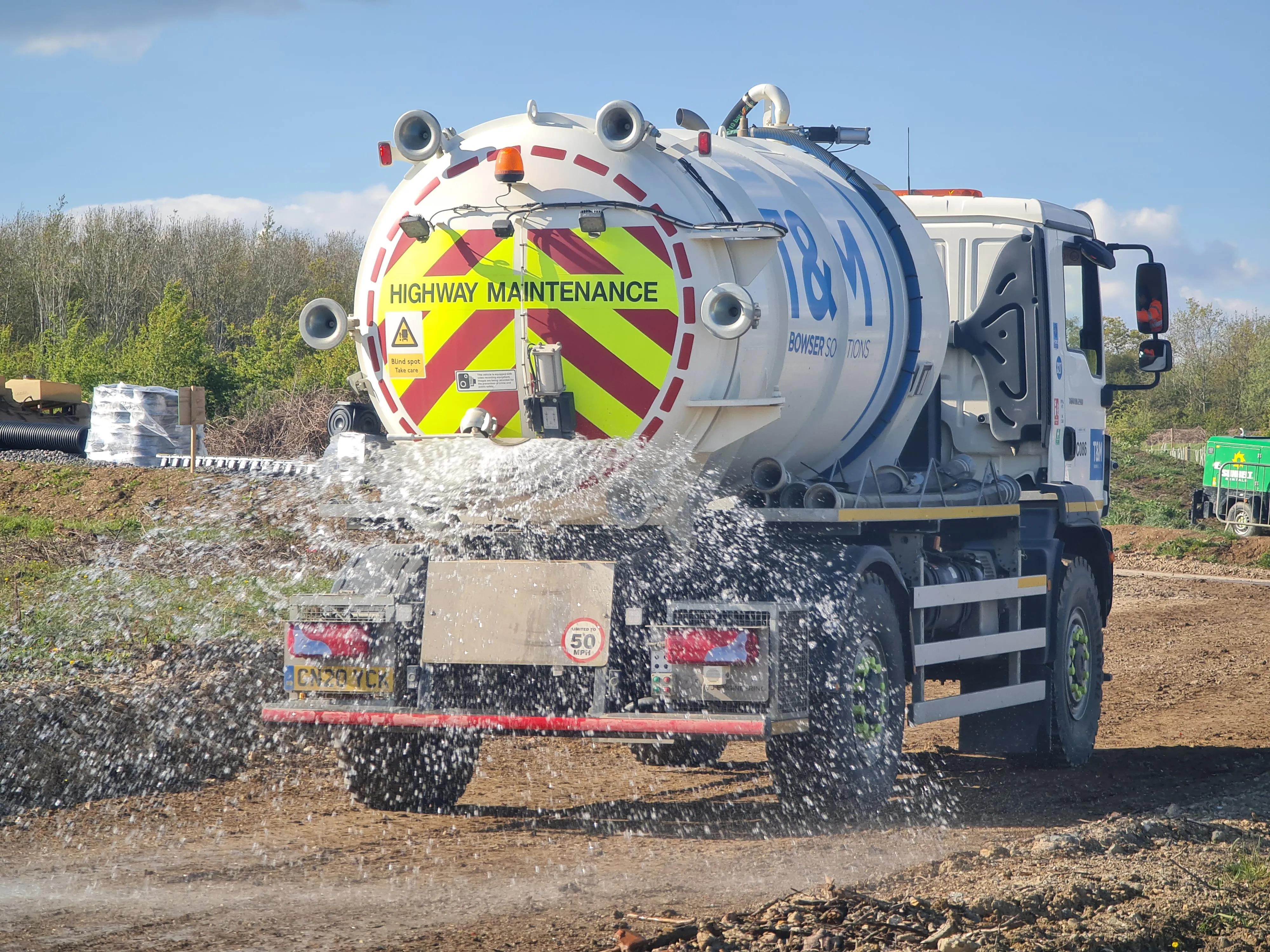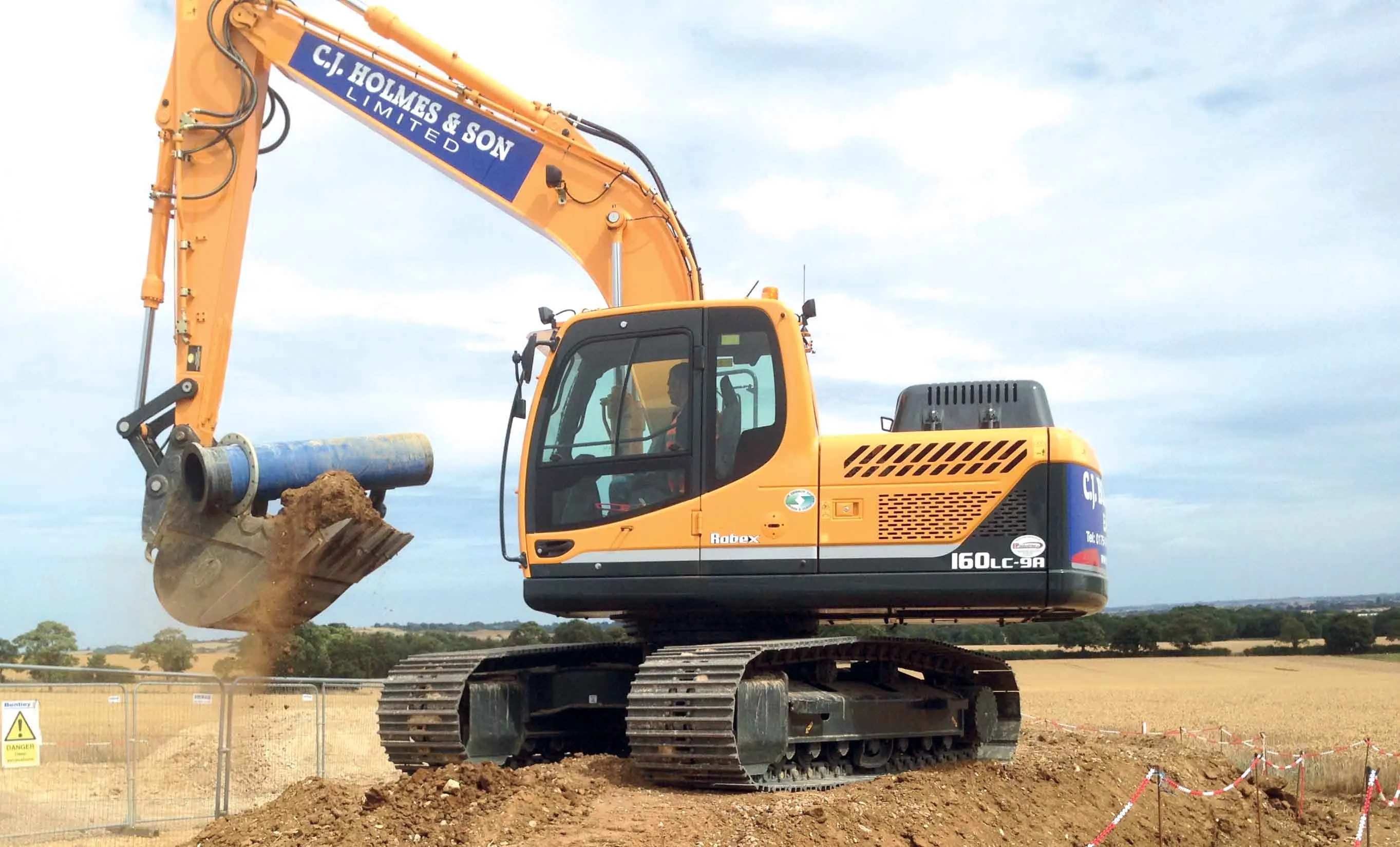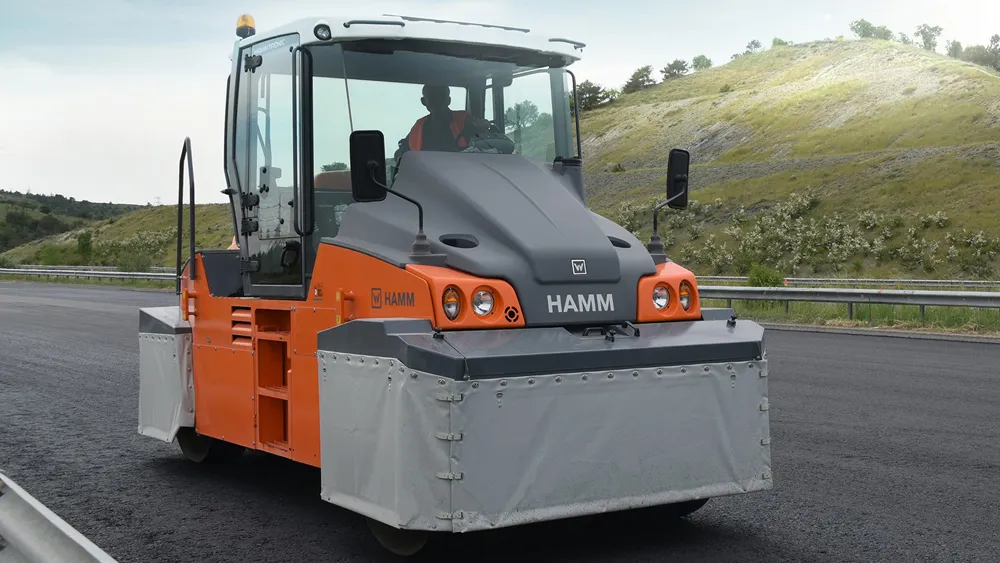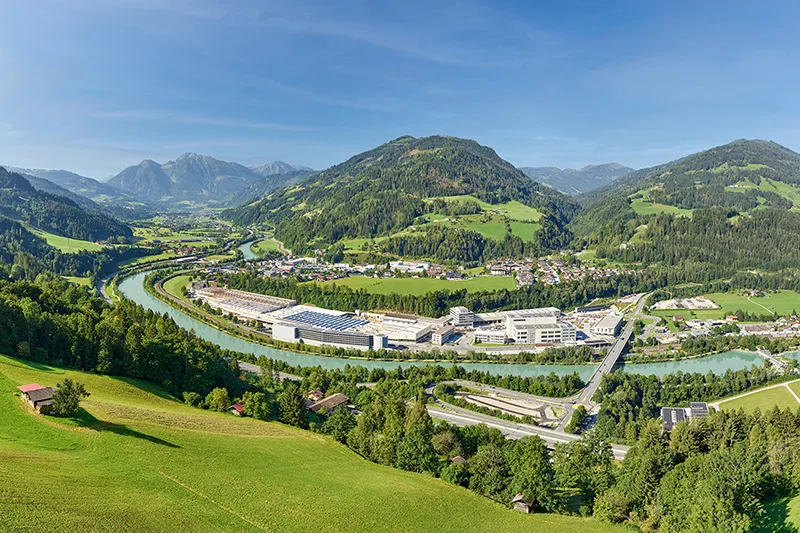
All 78 custom-built bowsers from UK-based T&M Bowser Solutions are reported to be already on road sites in anticipation of extremely dry weather this summer.
The manufacturer of tankers said it has 32 4x4 10,000-litre capacity vacuum tankers and 46 4x2 tankers, ranging in capacity from 3,000 to 10,000 litres.
Now all 78 vehicles are now on various construction, highways and infrastructure projects, said Terry Beasley, managing director at T&M. “Dust particles can be very small—not always visible—and as tools are used, vehicles travel or as the wind picks up, this dust can circulate in the air that workers are breathing.”
T&M’s fleet of 4x4s can be used to supply water to machinery and tanks. Many have spent the winter months sucking up rainfall from sites to prevent them from flooding. However, the priority is now very much on dust suppression.
The vehicles suck water from holding ponds through a pipe with a heavy-duty strainer on the end to prevent stones being drawn upward. These versatile vehicles can also remove summer rainfall and deposit it back into holding pools.
The 4x2s, meanwhile, are filled from a hydrant or static tanks on site. They are especially useful on motorway or urban projects where tractors or heavier duty vehicles can’t be used. T&M can combine various capacities in the smaller range to suit the particular requirements of the site. The entire fleet is cab-operated while in motion, further enhancing safety and efficiency.
“Both our 4x4 and 4x2 fleets can be used full-time on larger projects, as the risk of a site being shut down due to a lack of dust control is too high given the costs incurred,” explained Beasley. “We work with our partners to ensure that they can carry on working safely even in the driest of weather.”









